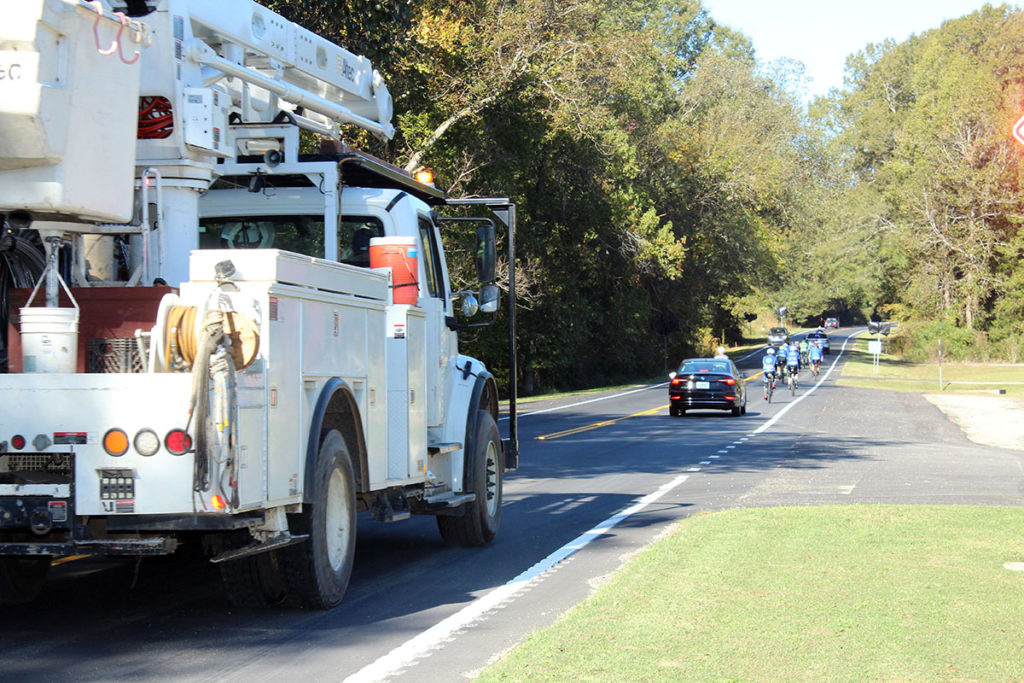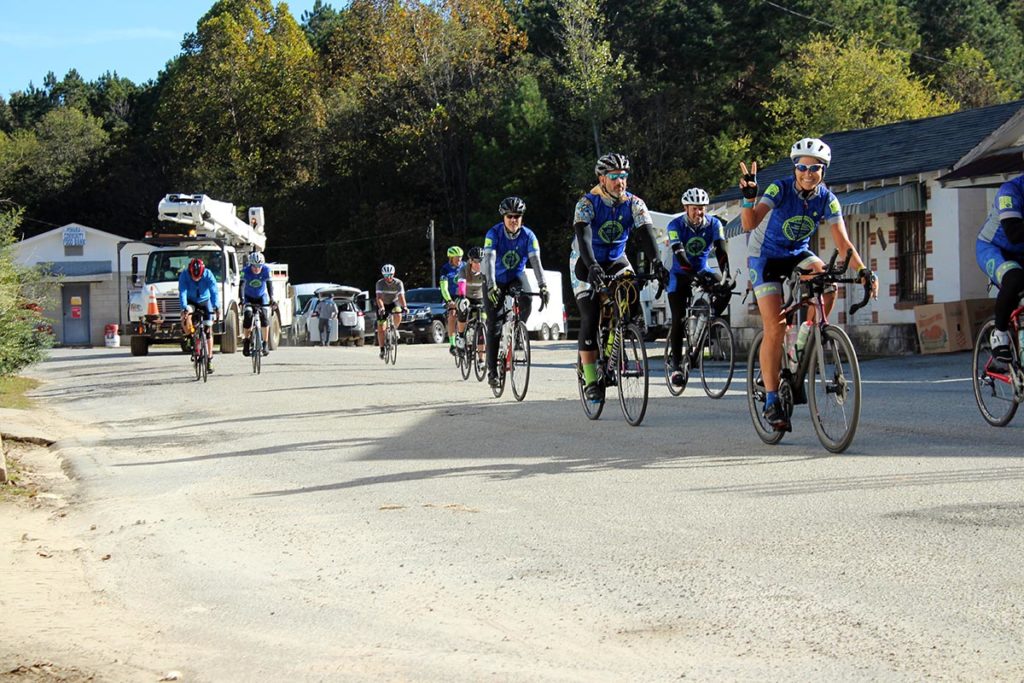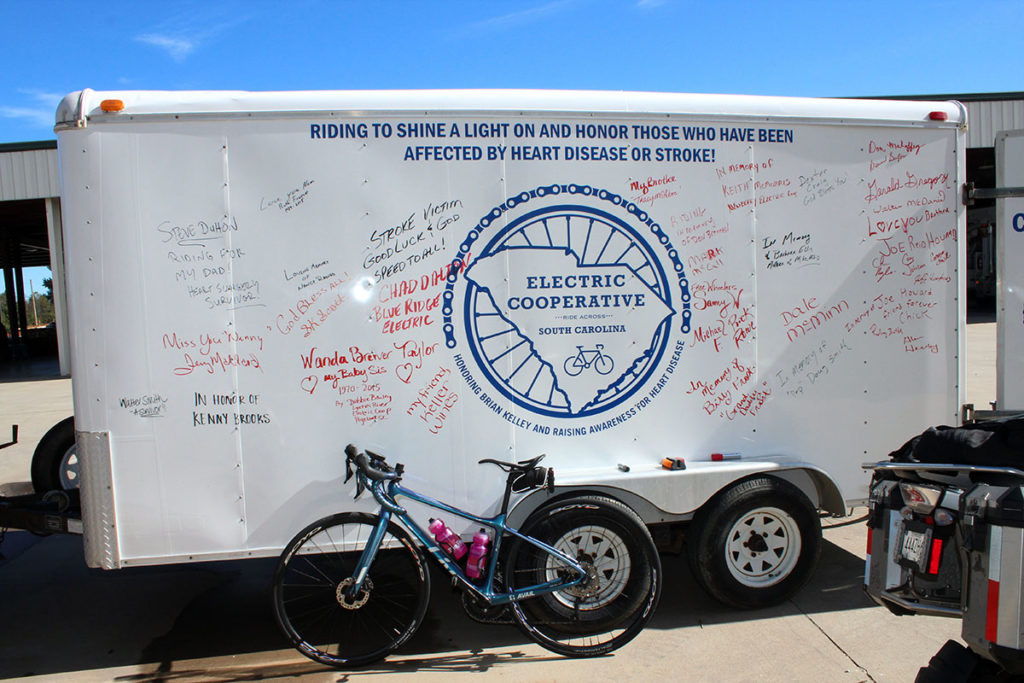
Pee Dee Electric Cooperative’s Brian Kelley seemed to be the picture of health. But in 2017, at the age of 42, the president and CEO of the South Carolina co-op died of a sudden heart attack. A CrossFit athlete and avid golfer, he held the job for only two years.
“He was definitely a rising star in our co-op family,” said James Chavez, a friend of Kelley’s who talked to him about an economic development project the morning he died.
“Everything was fine, but he said his doctor had given him reflux medicine for really bad heartburn,” said Chavez, president and CEO of SC Power Team, an economic development organization created by South Carolina’s electric co-ops. “That evening he was at the golf course having dinner with his wife, went to the men’s room and never came out.”
To honor the memory of the young CEO and spread awareness of heart disease, South Carolina co-ops recently organized “Ride Across South Carolina,” a seven-day cycling event that featured heart screenings and health fairs at the 18 co-op stops.
Twenty cyclists, including event organizer Chavez, completed the 648-mile ride that ended Nov. 2 in the state’s low country region, with several other employees and two board trustees joining for a day or two along the route.

“It was a very good way to get people thinking about heart health, which entails your total health,” said Horry Electric Cooperative’s Reed Cooper, who completed day five, an 85-mile ride between Black River Electric Cooperative in Sumter and his Conway-based co-op.
Co-ops gave employees incentives, including time off, to go to the health fairs staffed by officials from Healthy Me-Healthy SC, a statewide program of the Medical University of South Carolina and Clemson Rural Health.
The event “really hit home here. We’ve had instances that brought heart issues to the forefront,” including an employee who suffered a heart attack in the company mailroom but was revived by co-workers, said Keith Avery, president and CEO of Newberry Electric Cooperative.
“We remind everybody of the folks we lost to heart disease, and when we do something from a health-related standpoint, we really push you to get checked out,” said Avery.

Data collected from the hundreds of employees during the health fairs showed “way too many people” had elevated blood pressure, including a few in “hypertensive crisis,” according to Chavez.
“We wanted to know how many people presented as normal, how many presented as stage one or stage two, and how many were in hypertensive crisis,” he said. Participants got copies of their results along with individualized nutrition plans.
The employee incentives meant business was brisk at the co-op health fairs.
“People don’t think about their health in their free time,” said Caitlin Kickham, associate director of clinical operations at Clemson Rural Health.
“So, it was a really good opportunity to get people to think about it because the co-ops were encouraging their employees to come.”
Victoria A. Rocha is a staff writer for NRECA.